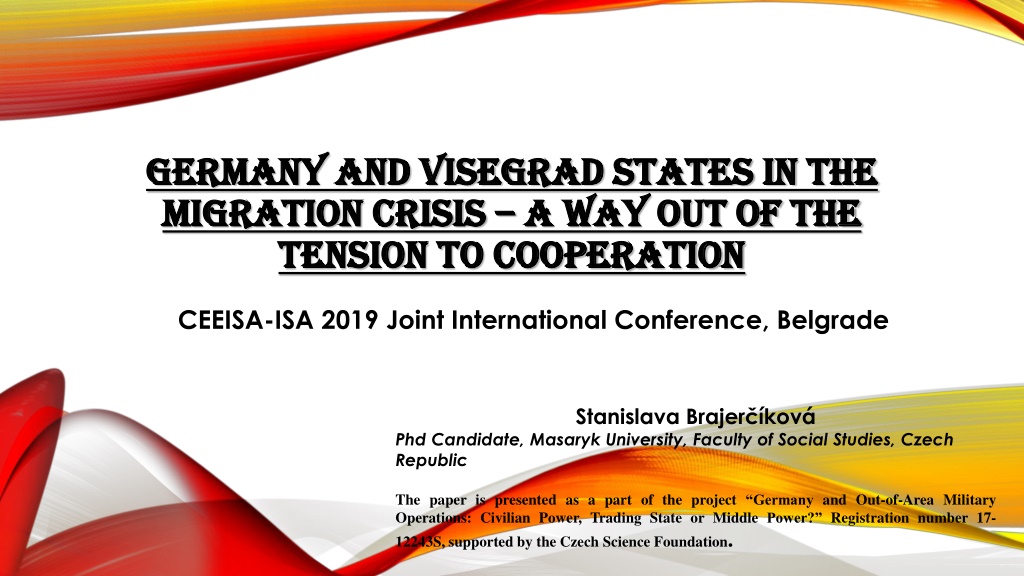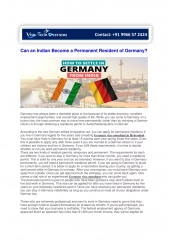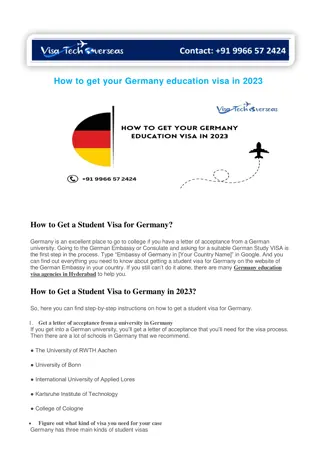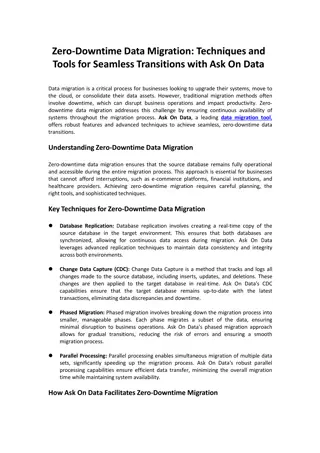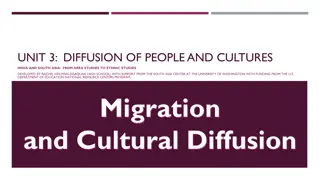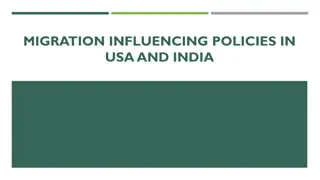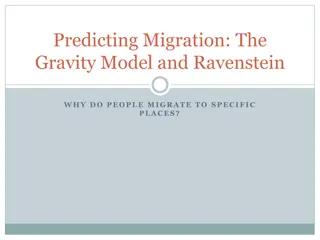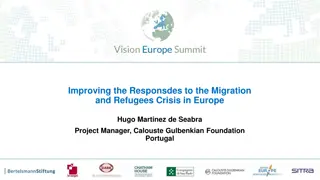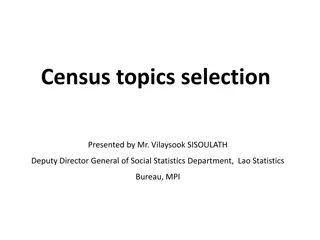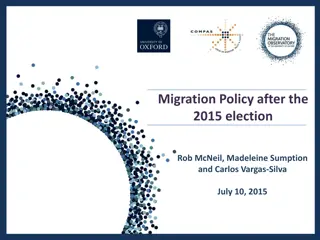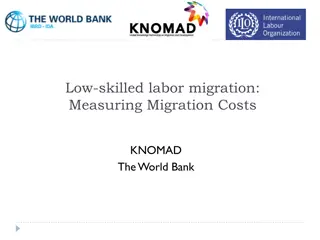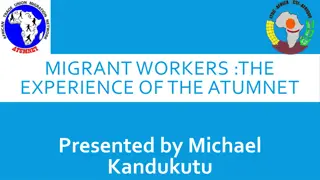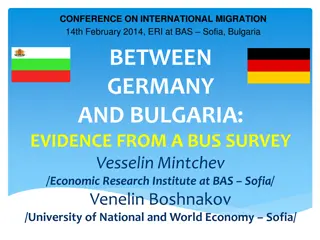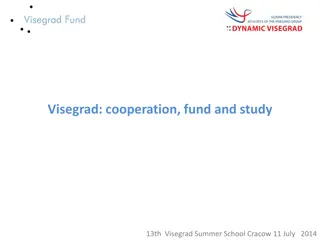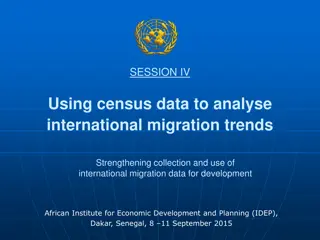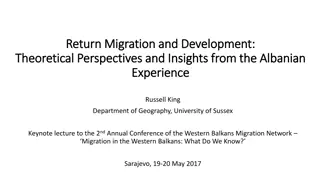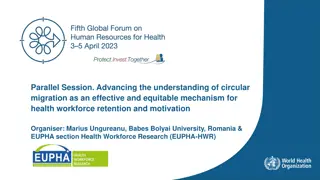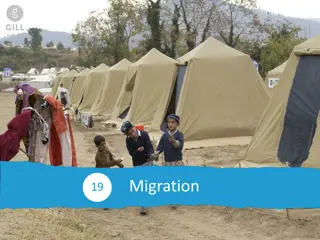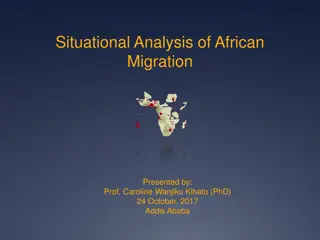Germany and Visegrad States: Navigating the Migration Crisis
Examining the complex dynamics between Germany and the Visegrad states, this paper delves into historical, political, and economic aspects that impact their relations, particularly in the context of the migration crisis. Disputed points, Germany's stance on the crisis, and potential for cooperation are explored to understand the path from tension to collaboration.
Download Presentation

Please find below an Image/Link to download the presentation.
The content on the website is provided AS IS for your information and personal use only. It may not be sold, licensed, or shared on other websites without obtaining consent from the author. Download presentation by click this link. If you encounter any issues during the download, it is possible that the publisher has removed the file from their server.
E N D
Presentation Transcript
GERMANY AND VISEGRAD STATES IN THE GERMANY AND VISEGRAD STATES IN THE MIGRATION CRISIS MIGRATION CRISIS A WAY OUT OF THE TENSION TO COOPERATION TENSION TO COOPERATION A WAY OUT OF THE CEEISA-ISA 2019 Joint International Conference, Belgrade Stanislava Brajer kov Phd Candidate, Masaryk University, Faculty of Social Studies, Czech Republic The paper is presented as a part of the project Germany and Out-of-Area Military Operations: Civilian Power, Trading State or Middle Power? Registration number 17- 12243S, supported by the Czech Science Foundation.
CONTENT CONTENT I. Visegrad states (V4) Germany relations overview II. Disputed points in the V4-Germany relations III. Migration crisis apple of discord German position IV. Migration crisis from the V4's point of view V. Conclusions potential for cooperation?
Germany as the most important business and economic partner I. VISEGRAD STATES (V4) GERMANY RELATIONS Historical and political responsibility for stable and peaceful Europe Germany as a key promoter of CEE integration in the EU and NATO Germany as a bridge and mediator between East and West Germany as civilian power or/and servant leader
II. DISPUTED POINTS IN THE V4-GERMANY RELATIONS Energy and climate policy Nord Stream II relations with Russia Euroscepticism Internal political situation in Poland - violations against the principles of the rule of law and the controversial judicial reform Internal political situation in Hungary - Orb n's restructuring of the constitutional state and the accompanying restrictions on media freedoms, the undermining of the constitutional court, and the action he has taken against civil society organizations
III. MIGRATION CRISIS APPLE OF DISCORD Position of Germany Position of Germany Migration crisis = common European problem Coalition of willing states Open door policy To differ between refugees and economic migrants Agreement with Turkey Mandatory migrant quotas New financial mechanisms to support refugees New resettlement programs Within UNO Comprehensive Refugee Response Framework
IV. MIGRATION CRISIS V4'S POINT OF VIEW the risk of a negative spill-over effect risk of threat for the Schengen Area, common market and free movement of persons due to the restitution border controls fragmentation of the key areas of integration fears of gradual exclusive orientation of the EU on the migrant issue and of growing engagement of the EU in the Mediterranean and Near Eastern territory major risks for the current relatively stable political and security situation on the European continent
POLAND POLAND HUNGARY HUNGARY not to become a country of immigration a separation fence along the border with Serbia and Croatia not agree with the proposal of the possibility to deploy a coast and border guard on their territory more than 170,000 asylum seakers in 2015; in 2017 - just under 3,400 Rejection of the UN Migration Pact ECJ rejected claim against mandatory migrant quotas from the beginning support for German plan government's change = change in the position towards migration crisis not agree with the proposal of the possibility to deploy a coast and border guard on their territory rejection of the UN Migration Pact
Migration crisis V4's point of view SLOVAKIA THE CZECH REPUBLIC the only V4 country that has agreed to take in small contingents of refugees but no mandatory migrant quotas rejection of the UN Migration Pact ECJ rejected claim against mandatory migrant quotas opponent of EU solidarity on refugee policy rejection of the UN Migration Pact
PRIME PRIME MINISTERS MINISTERS' ' DECLARATION DECLARATION ON MIGRATION MIGRATION ON a joint and coherent solution at the European level, concentration on the fundamental causes of the migration crisis, protection of the external EU frontiers, fully functioning hotspots, an effective policy of returning the migrants, no obligatory quotas principle of effective solidarity an effective reform of the Dublin Regulation
V. CONCLUSIONS POTENTIAL FOR COOPERATION? German behaviour viewed by the V4 states as a manifestation of new European political assertiveness and German unilateralism Germany views the negative attitude of its partners as a manifestation of stubbornness and lack of solidarity clear interest of the V4 in providing developmental and humanitarian help to migrants countries of origin as well as transit countries willingness to participate in preparing strategies for efficient and integrated developmental cooperation based on the principles of political coherence for development and partnership with these countries readiness to increase the efficiency of bilateral and EU assistance for the groups endangered in the countries and regions threatened by conflicts common GERMANY V4 project agreed in the Declaration of the Visegrad Group and the Federal Republic of Germany on the occasion of the 30th anniversary of historic changes in Central Europe
THANK THANK YOU YOU FOR FOR ATTENTION ATTENTION! !
